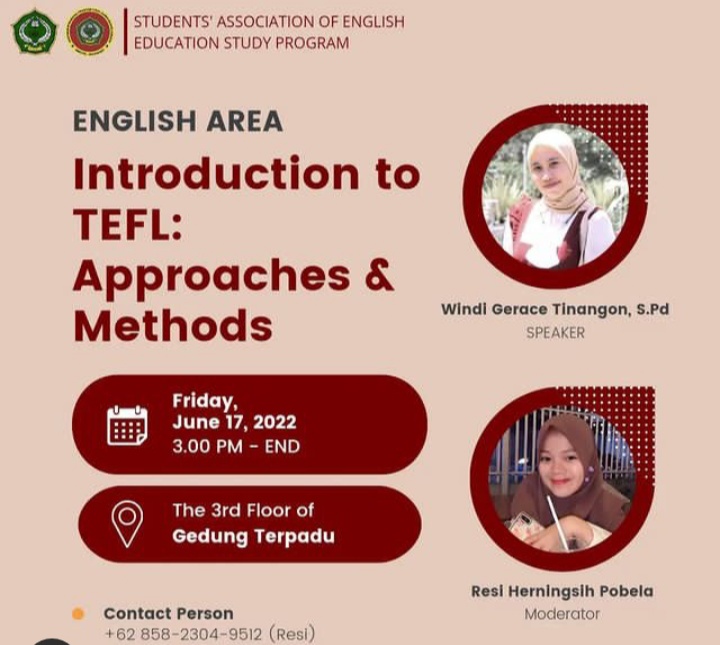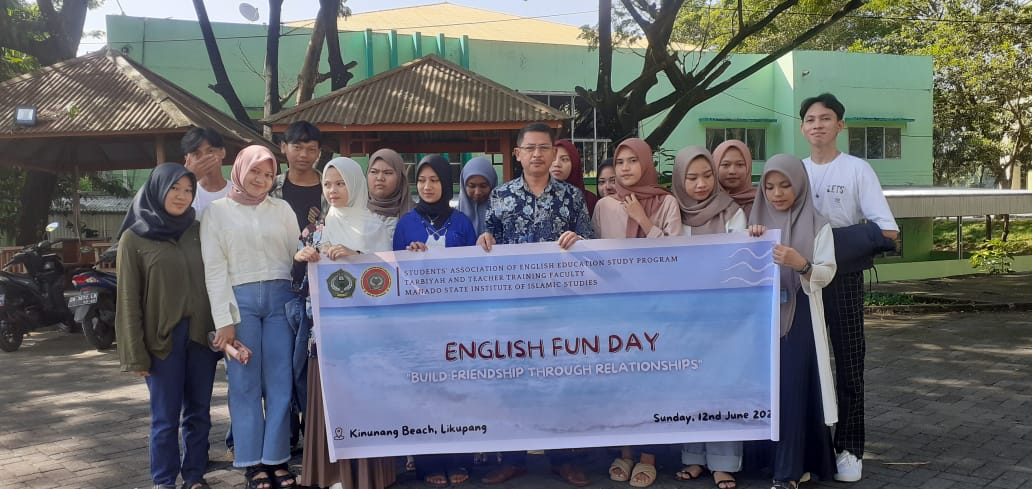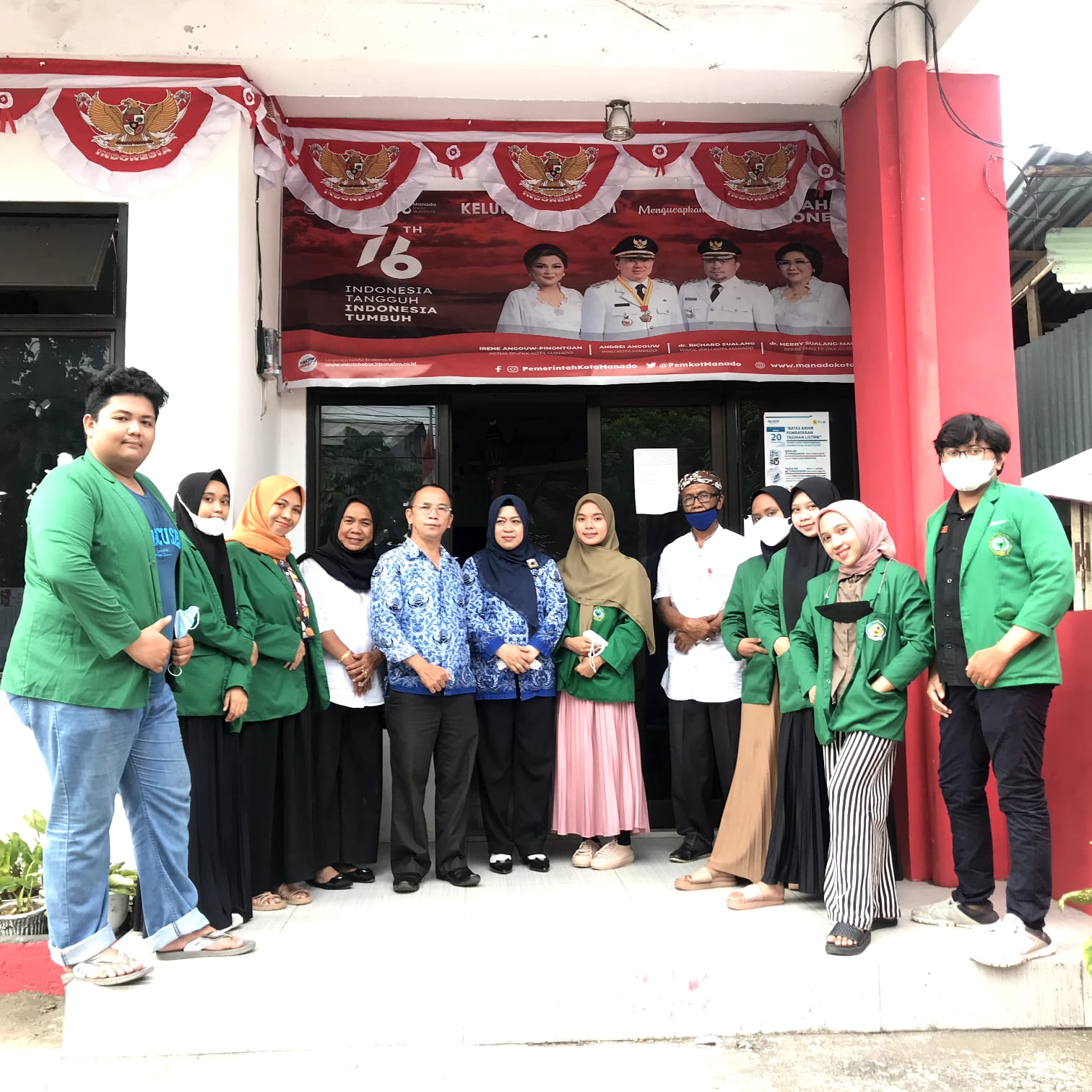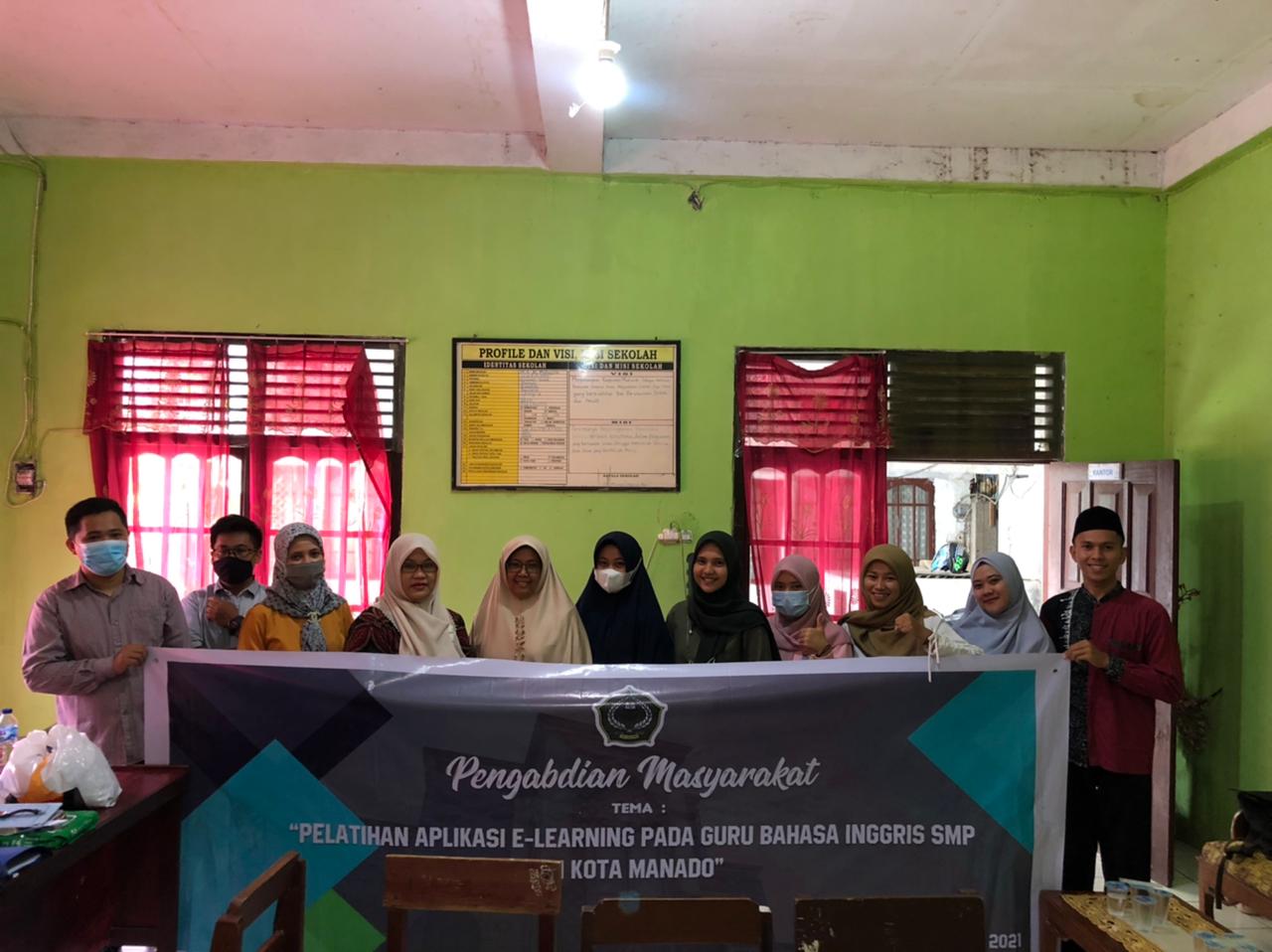
Makassar, March 23-25, 2022, after going through various stages of institute-level selection, IAIN Manado delegated one of the students of the English Education Study Program, Nofikasari Gobel, to take part in the Academic Writing Training for Islamic Religious Universities (PAWM PTKI) throughout Eastern Indonesia organized in Makassar by the Directorate of Islamic Higher Education. This training lasts for 3 days. For the specific location, it was held at The Rinra Hotel Makassar.
This Academic Writing Training activity was opened directly by the Rector of UIN Alauddin Makassar, Prof. Dr. Hamdan Juhannis, M.A. In his remarks he hoped that the participants would be able to apply the knowledge that would later be brought by creating scientific works that could then be implemented in real terms. He also hopes that students can collaborate in authorship after this training activity. On the same day after the opening of PAWM PTKI throughout Eastern Indonesia, students were introduced to the Policy of the Ministry of Religion regarding scientific work and publications, on this occasion it was delivered by Mr. H.M. Sidik Sisdiyanto, M.Pd as Head of Sub-Directorate of Saprasma Diktis and continued with the material ‘Introduction to the Academic Writing’ by Mr. Amiruddin Kuba, MA as the Head of Student Affairs of the Higher Education. At the end of the first day’s activities, participants were given the task of making an autobiographical essay which was expected to be discussed on the second day.
The second day began with the material ‘Finding the Writing Topics’ which was presented directly by Mr. Didin N. Hidayat, Ph.D. In his material he used a games approach, as well as several ways to find writing topics that are around us. In the first material, Nofikasari Gobel was given the opportunity by the speaker to comment on several parts of the material so that later it could be discussed together. In this case, Nofikasari commented on the search for topics that actually not only refer to big or booming things around, but researchers should also be able to research small things that are generally less noticed but actually have a big or serious impact.
The second session was presented by Mr. Agus Sufyan, M. App.Ling with the material title ‘Strategies for Accessing Reading materials’. In this session, the participants were introduced to ways to access reading materials that will be used in scientific or academic authorship, as well as several sites, and applications that support and how to paraphrase academic or scientific papers.
Furthermore, in the third session, presented directly by Prof. Ismail Suardi Wekke, Ph.D., he delivered a material entitled ‘Writing the Introduction Section’. In this session, bleliau formed a group of 4 members each who would read each other and correct the proposals that had been made at the beginning of the PTKI PAWM selection, as well as discuss the problems in it. Followed by the session before the break, namely the material ‘Writing the Literature Review Section’ by Mrs. Prof. Dr. Djuwairiyah Ahmad, M.Pd., M. Tesol.
Still on the same day, before the closing due to changes in activities, the evening was continued with the material ‘Writing the Methodology Section’ by Mr. Wahyuddin Halim, M.A., Ph.D. He delivered the material in a very unique way, namely from the last part to the first part. He explained several methods on how to write research methods to facilitate the preparation of academic authorship. He also shared some references and also showed his S1 thesis as an example to read.
After the last session, the activity immediately continued with the closing. All speakers and the committee hope that there are benefits and knowledge that can be applied by participants after this activity. Nofikasari herself hopes that he can improve his writing skills, especially in academic writing or scientific writing and can share what he has gained about authorship. According to her, it is a matter of course to be able to become a delegate after going through various stages of selection on campus and being able to take part in national-level training, with outstanding speakers, useful knowledge, and adding relationships with new friends.















